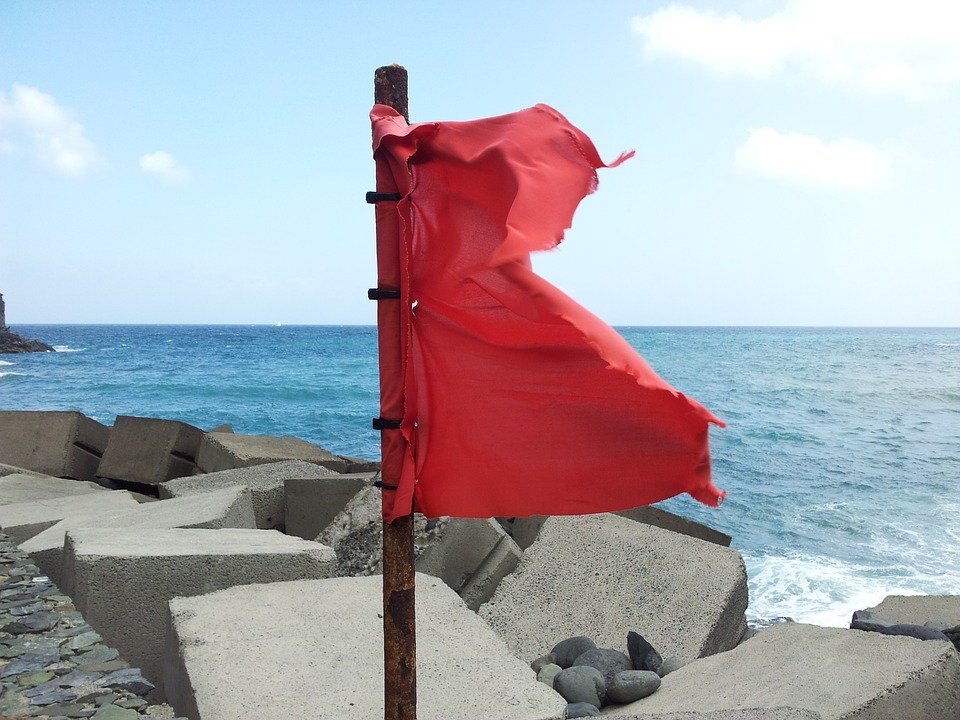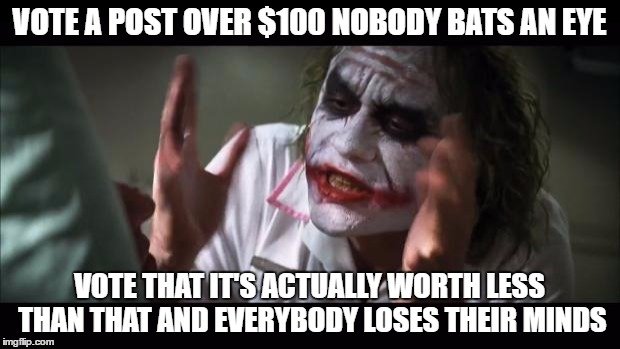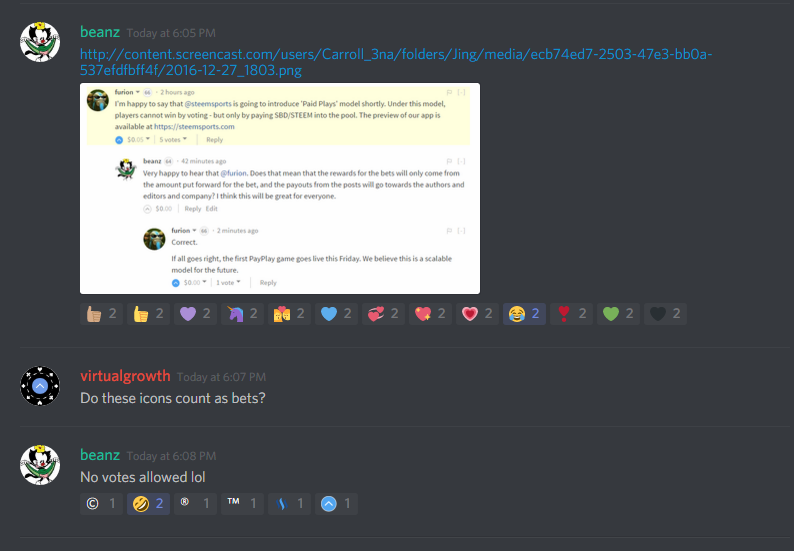A few weeks ago with a heavy heart I clicked the "Power Down" button. This was an emotional reaction to the words of a whale that brought me to the realisation that the minnows were no longer important to him. I believed if minnows weren't happy and wanted a change they had to rely on the whales support. I'm pleased today because a group of steemians proved that this is not always the case.
When I chose "Power Down" I was choosing to consider carefully whether this platform will be worth all the time and love I give it. I was preparing myself to walk away. I was afraid that things were never going to change as long as people feared the power-holders and their flags. I decided though, that if I'm going to go I'm going to have to say something to voice my dissatisfaction.
I had a choice. Either I whinge and moan about the problem I was seeing, and get no attention for it - because nobody likes a crybaby - or I can write something that will at least engage the community so that when it does get flagged, it will still be active enough to be noticed.
I proposed something that put me on Santa's naughty list.
But I realised there was far more fear of and confusion about the flag than I had anticipated.

There are two ways to perceive a downvote (flag).
- A tool for reporting abuse and a vote towards censoring the content
- A tool for redistributing the rewards of a highly rewarded post back to all of the other posts being valued at the same time.

Anybody who gets flagged jumps straight to the assumption that they are being accused of abuse. It feels like a kick in the teeth, rather than an altruistic feature for redistribution.
Steemit is a social media platform on which the users become the stakeholders. As stakeholders we each have some power (which comes with responsibility) in choosing how content on the webite is rewarded and what content makes it to top of the trending page. This curation is rewarded if you curate something early - but not as much if you vote when the rewards are already high - so the system is designed to discourage you from "piling on" on one post. We have a responsibility to make sure the content on the trending page is not being over-valued. When we have authors who are always trending (which is usually unsustainable), we can expect some emotional reactions when they get a pay cut.
OK kids, sit down and put your finger on your lips!

Your downvote is the exact same weight as your upvote but in the opposite direction. It does not report the post to anybody since this is to be a decentralised system. The post does not become hidden unless it is downvoted enough to bring it below $0.00. Your "Potential Payout" may fluctuate and is not yours until after your payout and therefore, any effects this payout has on your reputation also does not belong to you until after your payout which means your reputation is not damaged by a downvote unless the value of your post is brought below zero. In fact the flag is even at a cost to the flagger since we have a limited number of votes before our curation rewards get diluted. A downvote does not gain curation reward and is therefore the cost of an upvote which would have.
Yet people insist that when they are flagged they are being attacked.
But I cannot force my perception of a downvote on you. Changing the flag back to the original design of a downvote would probably not be enough to change community perception.
Here is how I propose we change things, so that we can create a system where we don't have to overvalue posts out of fear of using the downvote to redistribute the rewards.

Smart Votes
Imagine if when you upvote something your vote is only effective until the post reaches a value which you believe is the maximum value that post is worth. In other words, I could up-vote a post that is at $10, but I can smart-vote the post up to a max of $100 so that when the post reaches that value my vote would become ineffective. The vote is still in place on the blockchain, so the curation reward still applies to reward those who found the post early.
This could help alleviate the feeling of bitterness over their rewards being removed because it would happen more naturally by those who upvoted the post.
I am sure the downvote can still play a role here too, but there would need to be a way to incentivise people to smart-vote responsibly if we are to expect to not need the downvote to rebalance author rewards.
Finding and rewarding Noobs
I've also been thinking about ways to incentivise finding and rewarding new authors on steemit. Ever since our feeds became our homepages, steemians have gotten more and more clique which puts a barrier between us and newcomers. Here are 2 ideas to help with this:
- Develop an automated tag for first posts, so that anybody who writes a first post is automatically tagged in a place where we can find them.
- Create higher curation rewards for finding authors with less followers.
Since building a following is so important to steemians, we could lower the percentage of author rewards for newcomers, incentivising whales to seek out their content. Those of us with a large following should still get enough whale votes if they anticipate enough of our followers will upvote us. It is difficult to think of appropriate numbers for this. Currently the user with the most followers is @dollovigillante with 3500 followers and there are only 40 accounts with 1000+ followers. We could match 0 - 1000 followers with a curation scale of 50% to 25%. This would really encourage competition between lesser known authors and those who come with a following. Authors are incentivised to gain followers still, because the curation rewards take less of their rewards and curators are incentivised to find more new authors to gain a higher percentage of the curation reward.

Looking forward to the New Year...
I want to thank everybody who voiced their unpopular/controversial opinions in the past week. I felt very alone in my concerns and was on the verge of giving up as it seemed like there was no opposition for what I saw to be defeating the purpose of our presence here. It is a true honour to be a part of this community.
I look forward to a bumpy future ahead with you all. I say bumpy rather than bright because we must remember that this is all a learning experience and experiment. We will make mistakes and tear each other apart. But I am glad there are so many of us who believe in this concept and are willing to stand up and poke holes in the flaws in the system.
It turns out there are alternatives to having lots of SP and alternatives to flagging to make things change for the best of the community and this is how we celebrate when things work out.

Vote not for betting games
Many members of the community have come to the decision that votes should be strictly used for reward distribution for authors. The reason we have curation set so that only those who are first to find valued content get the majority of the reward is to prevent pile ons. These betting games did not prevent pile ons. You could vote first or last and as long as the pool is getting bigger the incentive is to pile on. This is the difference between curation rewards and vote buying. When the vote is used in a betting game that undermines the system in place.
What is Vote Buying?
Vote buying is when you can gain added rewards - other than curation - for voting on a post. The size of the rewards also manipulates further piling on which extracts rewards from the posts valued less because of less visibility. This discourages competition and we hope that any other games authors will reconsider how they manipulate incentives to vote for their post.
Many successful initiatives such as #openmic have rewarded participants without using their own post rewards to incentivise participation or pile-ons. There are other ways to continue the gaming and keep the reward pool for those who worked on the post. Lets keep steemit clean and open for competition.

